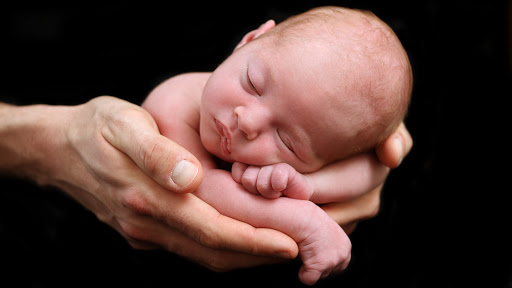Did you know that babies “talk” with their mothers before being born?
There is very solid evidence to support that an early embryo is not a clump of cells, but a living member of our species
The “biological status of the human embryo” is a fundamental subject of Bioethics, because showing that a human embryo is a living member of our species and not a formless group of cells is crucial to confirming that any technique that involves the destruction of an embryo is bioethically unacceptable.
The “dialog between an embryo and the mother” is an argument often used to defend this thesis. It deals with the fact that an embryo communicates, right from its initial voyage through the Fallopian tube to the uterus where it will implant.
The fact that a human embryo can establish that biological dialog with the lining of the uterus – that is to say, with its mother – is solid evidence that the early embryo is not a clump of cells, but rather a living human being.
Mother-Fetus Dialog
But, in what does this dialog consist?
During its passage through the Fallopian tube and its implantation in the mother’s endometrium, the embryo produces and secretes a series of biochemical compounds that act on the endometrium to facilitate its implantation. It is as if the embryo were warning its mother that it is arriving at the place where it will nest in the uterus, so that the uterus can be prepared; that is to say, so that the mother’s body can prepare the area where the child will implant.
But the mother’s endometrium, in turn, produces and secretes other compounds in the endometrial fluid, in which the embryo is immersed, which are fundamental for the embryo to be able to implant.
This mother-fetus dialog involves another biological event, which also indicates the early embryo’s nature as an organized living being: a decrease in the mother’s immunological activity, in order to facilitate her child’s implantation.
The embryo is, in fact, a living being foreign to the mother, since half of its genetic content proceeds from its father. Consequently, it could be rejected, but to avoid that situation, the mother’s body reduces its immunological activity, so as to facilitate the child’s implantation. (mother-fetus immunity).
In addition, an article was just published in Development (142; 3210-3221, 2015) showing that the elements included in the fluid secreted by the maternal endometrium, which is absorbed by the child during its process of implantation, can modify the expression of genes in the child.
This has important biomedical and bioethical consequences. From the biomedical point of view, this genetic interrelation could increase the risk of the child suffering from certain diseases, such as type 2 diabetes, or biological conditions that could increase the risk of suffering from certain disorders such as obesity.
But this relationship between mother and child can also occur after in vitro fertilization when donated ova are used – that is to say, ova that come from a different woman than the mother – or when surrogate mothers are employed. In the first situation, the expression of the genome of the child could be modified by the influence of the maternal messages; in other words, information coming from the maternal endometrium would be incorporated into the child’s genome. Consequently, in a certain very limited way, it would become an embryo that has been genetically modified through the influence of the biological mother.
In the case of surrogate mothers, they could also influence the child’s genome; that is to say, biological ties could be established with the child well beyond those engendered by pregnancy itself. Consequently, since the mother would modify the expression of the child’s genome, their relationship would be substantially increased, which without a doubt could create more biological and sociological problems than those already known to arise from these practices.
Justo Aznar and Julio Tudela
Bioethical Observatory
Catholic University of Valencia

